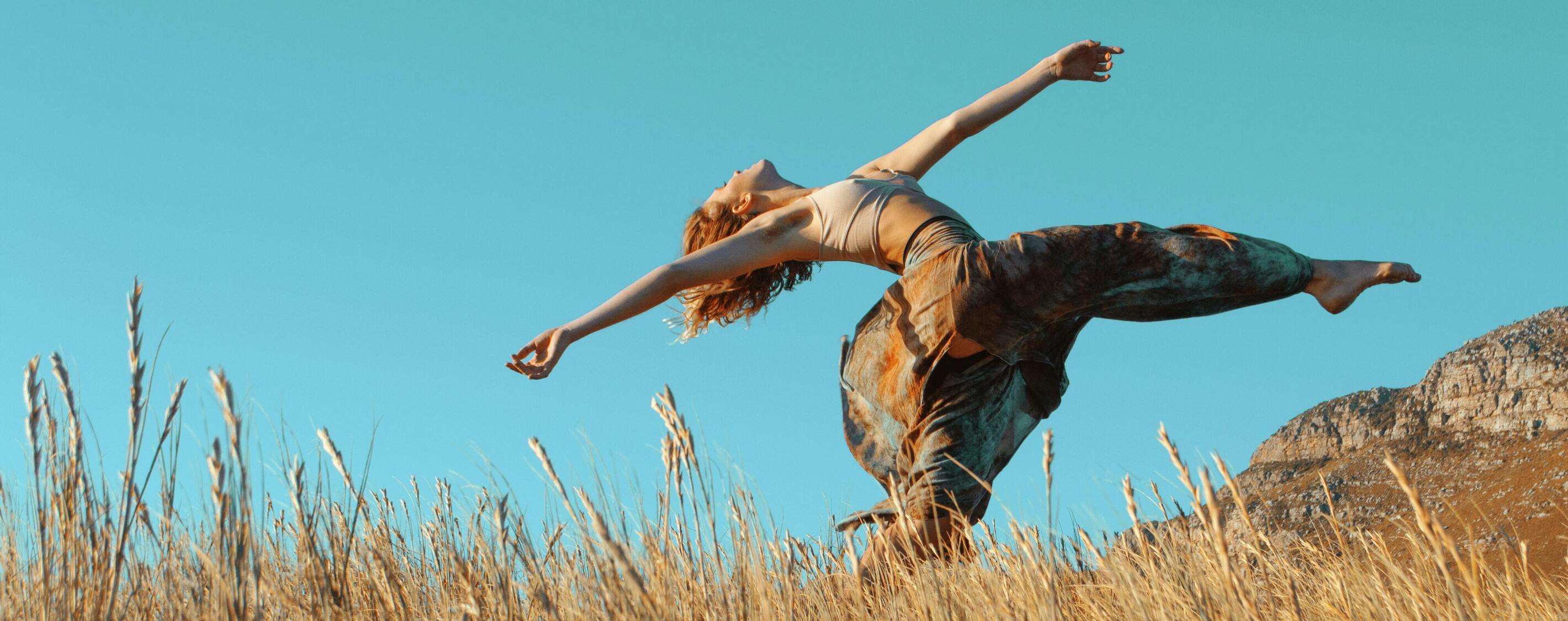“A sign of wisdom and maturity is when you come to terms with the realization that your decisions cause your rewards and consequences. You are responsible for your life, and your ultimate success depends on the choices you make.” - Dennis Waitley, motivational speaker and author
A key milestone in your physical, mental, emotional, and spiritual growth is the cultivation of personal responsibility. As a child you had very little responsibility. Your parents were responsible for you—they tended to your needs, protected you, provided for you, and made sure you had shelter, food, clothing, and other fundamentals for survival. They also gave you varying degrees of financial, intellectual, and emotional support as you grew into adulthood. At some point, however, you have to take the evolutionary step into becoming responsible for yourself.
However, a more profound and transformational view is one in which you take full responsibility for everything in your life. This shift in perspective can be a watershed moment of personal empowerment and liberation. When everything you experience is your responsibility, you have enormous power that can be used to accelerate your growth and evolution.
Like a multifaceted jewel, responsibility has many aspects, each of which contributes to the whole. Consider the following as you reflect on taking responsibility in your life.
The Law of Karma is a system of checks and balances that manages how that energy is registered and how it comes back into your life. There’s nothing mystical about karma; it is the direct expression of cause and effect.
Becoming responsible is recognizing that where you find yourself in this moment is the culmination of all the choices you have made throughout your life. Countless decisions and choices have led you to this very moment. Understanding that you, as infinite choice makers, either consciously or unconsciously, have been sculpting the clay of your experiences into the reality you are now living is an incredibly powerful moment of awakening.
It’s not always easy and can sometimes be uncomfortable to see your life as the result of both good and bad choices, but ultimately you recognize that it’s you; it’s always been you. Once you own that knowledge, you can become the conscious creator of your experience going forward.
Knowing that you will have to be accountable places the steering wheel of your life squarely in your lap. At the deeper soul level of awareness, shifting responsibility doesn’t exist as an option. In this way accountability is a gift that helps to keep you in your lane—nudging you back to ever increasingly appropriate choices.
Expanding your awareness to witness your choices gives you the means to cut the binding net of your old, limiting actions and make a spontaneous and creative new choice.
One of the most liberating ways to own this aspect is to understand and harness the difference between an observation and an evaluation. As described in psychologist Marshall Rosenberg’s book Nonviolent Communication, recognizing that an observation is simply witnessing what is happening with total objectivity and no personal emotional investment in the situation. It is seeing things just as they are, as if you were a detached third-party observer sent to report on an event. An evaluation however, is when you assign an interpretation onto the observation. When you make an evaluation, you’ve made an assumption or jumped to a conclusion about what someone has said or done. In this way you emotionally hijack yourself and allow the situation to control you.
When you observe things as they are, not as you interpret them, you stand at a crossroads where you can take responsibility for your feelings and, thus, consciously respond rather than react out of anger or hurt. This awareness opens the door to owning your emotions and the effect they will have on your life.
With the attainment of personal responsibility, however, comes a higher awareness. Responsibility is a declaration that you will no longer be a victim. It implies that you can chart your course rather than being tossed around like a ship without a rudder on a stormy sea. Those outside events no longer determine your destiny. You can focus your intentions to create the life of your dreams. Even in challenging times you can take responsibility for how you will view the situation and see it as an opportunity for growth.
As Austrian psychologist and neurologist Victor Frankl writes in Man’s Search for Meaning, “When we are no longer able to change a situation, we are challenged to change ourselves.” This is the power of responsibility, the complete ownership of who you have been, who you are, and who you will become.
A key milestone in your physical, mental, emotional, and spiritual growth is the cultivation of personal responsibility. As a child you had very little responsibility. Your parents were responsible for you—they tended to your needs, protected you, provided for you, and made sure you had shelter, food, clothing, and other fundamentals for survival. They also gave you varying degrees of financial, intellectual, and emotional support as you grew into adulthood. At some point, however, you have to take the evolutionary step into becoming responsible for yourself.
Responsibility Explained
What does it mean to be truly responsible? In conventional terms, being responsible means you are able to provide for or take care of yourself. This definition often refers primarily to the material aspects of your life. For example, you can fulfill your needs for survival, a home, a car, a career, etc. Responsibility typically amounts to those things you feel you have direct control over and is sometimes considered a duty or an obligation to behave in a responsible manner or a way that upholds a certain set of ideals or morals.However, a more profound and transformational view is one in which you take full responsibility for everything in your life. This shift in perspective can be a watershed moment of personal empowerment and liberation. When everything you experience is your responsibility, you have enormous power that can be used to accelerate your growth and evolution.
Like a multifaceted jewel, responsibility has many aspects, each of which contributes to the whole. Consider the following as you reflect on taking responsibility in your life.
Responsibility Is an Acknowledgement of the Law of Karma
Karma, the Sanskrit word for action, implies not only the actions you take in the form of thought, speech, and deed, but also the consequences of those actions. Every action you take generates a force of energy that returns to you in kind. The energy you put out into the universe will at some point return to you.The Law of Karma is a system of checks and balances that manages how that energy is registered and how it comes back into your life. There’s nothing mystical about karma; it is the direct expression of cause and effect.
Becoming responsible is recognizing that where you find yourself in this moment is the culmination of all the choices you have made throughout your life. Countless decisions and choices have led you to this very moment. Understanding that you, as infinite choice makers, either consciously or unconsciously, have been sculpting the clay of your experiences into the reality you are now living is an incredibly powerful moment of awakening.
It’s not always easy and can sometimes be uncomfortable to see your life as the result of both good and bad choices, but ultimately you recognize that it’s you; it’s always been you. Once you own that knowledge, you can become the conscious creator of your experience going forward.
Responsibility Gives You the Gift of Accountability
Owning your karmic debt means that you are accountable for yourself. No one speaks for your actions or your lives but you. You alone answer for your choices and actions. This is a powerful insight that helps to keep you honest and cognizant of making evolutionary choices that are nourishing for everyone touched by your actions.Knowing that you will have to be accountable places the steering wheel of your life squarely in your lap. At the deeper soul level of awareness, shifting responsibility doesn’t exist as an option. In this way accountability is a gift that helps to keep you in your lane—nudging you back to ever increasingly appropriate choices.
Responsible Is Being Able to Respond
Becoming responsible gives you the freedom to have a creative response to every situation as it exists now. When you are trapped in a karmic loop of conditioned behavior, you are unaware, and therefore unable to make a different choice. When you choose to take personal responsibility for yourself and make conscious choices, you can bypass the unhealthy programs of your past conditioning. As Swami Vivikananda reminds us, “Karma is the eternal assertion of human freedom. . . Our thoughts, our words, and deeds are the threads of the net which we throw around ourselves.”Expanding your awareness to witness your choices gives you the means to cut the binding net of your old, limiting actions and make a spontaneous and creative new choice.
Responsibility Is the Key to Emotional Freedom
Taking responsibility means that you recognize your feelings are just that—yours. When situations or people cause you to have an emotional reaction, it’s not their fault. Your upset or anger isn’t caused by those situations or people; it’s caused by your feelings about them. You’re not responsible for what someone else says or does; however, you are responsible for how you respond to what they say or do. It’s empowering to realize that no one can make you feel an emotion without your permission. Your feelings are, therefore, your responsibility. By a similar token, you are not responsible for the feelings of others.One of the most liberating ways to own this aspect is to understand and harness the difference between an observation and an evaluation. As described in psychologist Marshall Rosenberg’s book Nonviolent Communication, recognizing that an observation is simply witnessing what is happening with total objectivity and no personal emotional investment in the situation. It is seeing things just as they are, as if you were a detached third-party observer sent to report on an event. An evaluation however, is when you assign an interpretation onto the observation. When you make an evaluation, you’ve made an assumption or jumped to a conclusion about what someone has said or done. In this way you emotionally hijack yourself and allow the situation to control you.
When you observe things as they are, not as you interpret them, you stand at a crossroads where you can take responsibility for your feelings and, thus, consciously respond rather than react out of anger or hurt. This awareness opens the door to owning your emotions and the effect they will have on your life.
Responsibility Means You’re the Victim No More
When you don’t take responsibility for your life, you give up your power and get caught in a cycle of victimization. Your life feels as if it is predetermined by the erratic whims of people and situations that are beyond your control. You blame your parents, your genetics, your relationships, your educational status, the economy, the political climate, and countless other factors as the cause of your unhappiness. This “victim” or “poor me” mentality is not only unproductive and stagnant, it is unhealthy and damaging to your sense of self.With the attainment of personal responsibility, however, comes a higher awareness. Responsibility is a declaration that you will no longer be a victim. It implies that you can chart your course rather than being tossed around like a ship without a rudder on a stormy sea. Those outside events no longer determine your destiny. You can focus your intentions to create the life of your dreams. Even in challenging times you can take responsibility for how you will view the situation and see it as an opportunity for growth.
As Austrian psychologist and neurologist Victor Frankl writes in Man’s Search for Meaning, “When we are no longer able to change a situation, we are challenged to change ourselves.” This is the power of responsibility, the complete ownership of who you have been, who you are, and who you will become.




